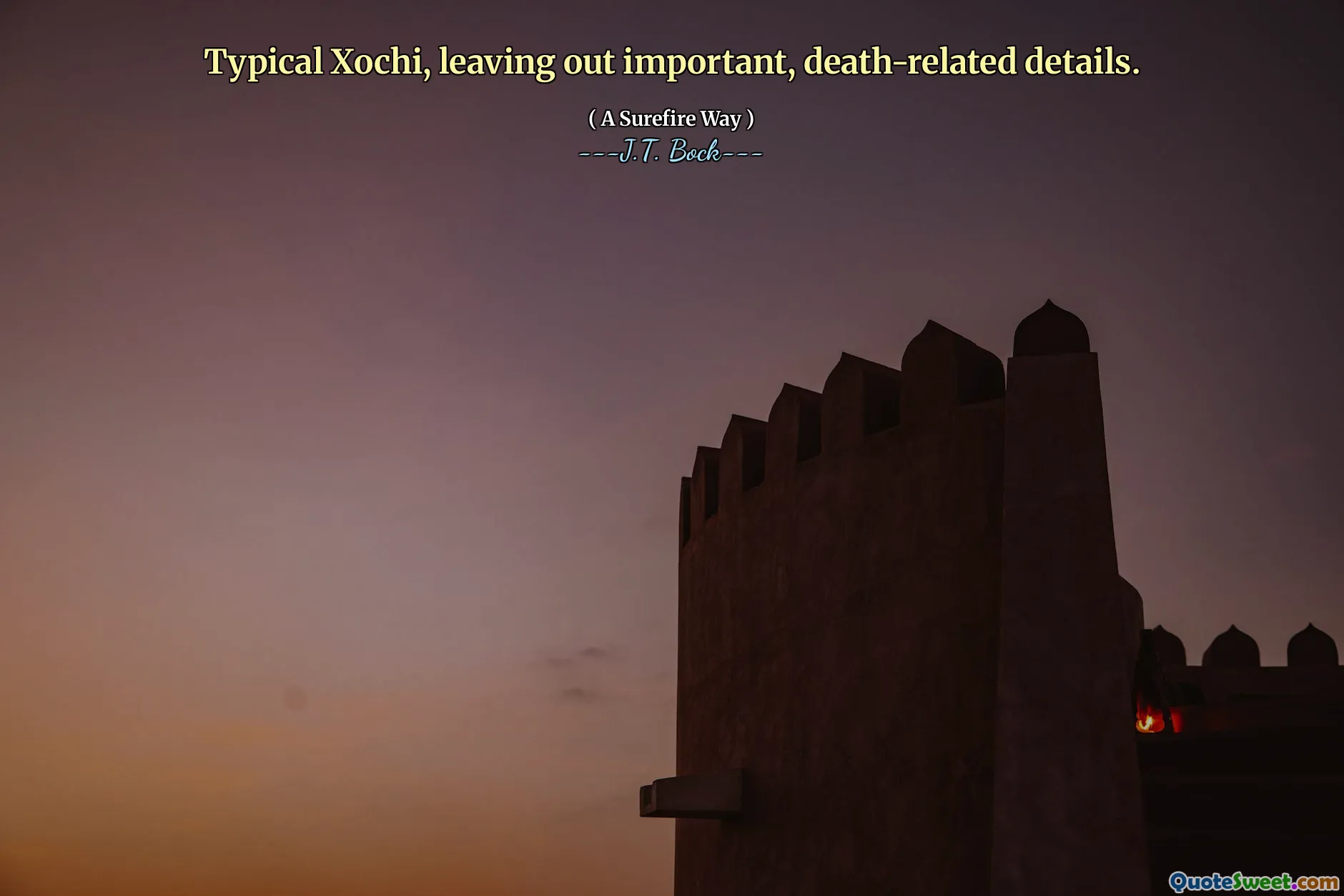
Typical Xochi, leaving out important, death-related details.
This quote highlights a tendency that many individuals have to omit critical or uncomfortable information. In the context of communication, such omissions can lead to misunderstandings, false perceptions, or even tragic consequences. The phrase 'leaving out important, death-related details' suggests that the speaker perceives someone—possibly Xochi—as deliberately withholding vital facts, perhaps to manipulate, protect, or avoid confrontation. This brings to mind the importance of honesty and transparency, especially when the stakes are high. Omitting details related to death or serious matters can undermine trust and hinder meaningful dialogue, whether in personal relationships, journalism, or historical recounting.
The act of leaving out such significant information often reflects underlying motives—fear, shame, or a desire to control the narrative. It raises ethical questions: Is it acceptable to withhold facts if they might cause pain or discomfort? Does incomplete disclosure serve a higher purpose, or does it betray ethical responsibilities?
In literature and storytelling, the choice to omit details can be a powerful device, used to build suspense or provoke thought. However, in everyday life, such omissions tend to create more harm than good because they prevent a clear understanding of reality. Recognizing this human tendency is vital for developing better communication, fostering trust, and ensuring that others are fully informed to make their own decisions.
Ultimately, this quote underscores the dangerous pitfalls of selective truth-telling. It invites reflection on our own honesty and the importance of confronting uncomfortable realities rather than evading them. Whether dealing with personal truths, societal issues, or moral responsibilities, the willingness—or reluctance—to share the full scope of information greatly influences the integrity of our relationships and the authenticity of our understanding.
(A Surefire Way) - J.T. Bock






